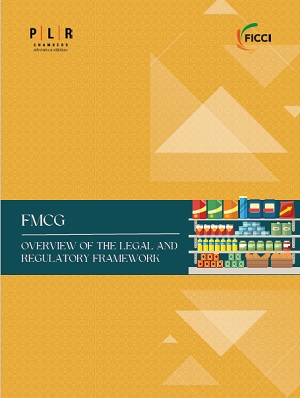Overview of the Legal and Regulatory Framework: FMCG
March 2023 | FMCG
Introduction
The retail and FMCG sector is an essential part of any economy, and its well-being is often seen as an indicator of the economy's health. However, the sector is facing numerous challenges due to the numerous laws, regulations, and compliances imposed on it. These regulations are hindering the sector's growth and making it challenging for businesses to operate efficiently.
Impact of numerous Laws, Regulations, and Compliances on Retail and FMCG Sector's Growth
Before starting any business in the retail or FMCG sector, businesses need to secure various licenses and permissions. These permissions include trade licenses, shops and establishment registration, GST registration, incorporation of the company, legal metrology packaged commodities regulations, importer-exporter code, NOC from fire department, pollution control board, drugs and cosmetics licenses, waste management compliance, FSSAI license, Agmark certification, and BIS certification. The regulatory burden does not end here; businesses need to comply with various routine regulatory compliances, including labor law compliances, legal metrology, FSSAI, consumer protection act, FDI policy, intellectual property laws, GST, and competition act.
The numerous licenses, permissions, and compliances add to the costs of doing business and make it challenging for small and medium-sized enterprises (SMEs) to enter the market. The high costs of compliance are often a significant barrier to entry, making it challenging for new players to compete with established businesses. The complex regulatory environment also increases the time and effort required to comply with the regulations, diverting resources from core business activities. The strict regulations also limit innovation in the sector, making it difficult for businesses to introduce new products or services.
The impact of numerous laws, regulations, and compliances is not limited to the retail sector. The FMCG sector also faces similar challenges, with businesses required to secure various licenses and permissions before starting operations. In addition, there are advertising restrictions that add to the regulatory burden. The introduction of new regulations, such as the Food Safety and Standards (Labelling and Display) Regulations, 2020, has made it even more challenging for businesses to comply with the regulations. The regulations require businesses to modify their labels and packaging, which can be costly and time-consuming.
The Impact of the regulatory burden is not limited to the cost of doing business. The compliance requirements can also impact the quality of products and services offered by businesses while prioritizing compliance over quality, substandard products and services might be on offer.
Initiatives taken by the Government to Address the Issues
The government has recognized the challenges faced by the retail and FMCG sector due to the numerous laws, regulations, and compliances. To address these issues, the government has taken several initiatives aimed at simplifying the regulatory environment and reducing the compliance burden on businesses. However, the government has brought in too many new regulations and laws in the FMCG sector. Let’s take one example to understand the landscape.
Introduction of Food Safety and Standards (Labelling and Display) Regulations, 2020:
The Food Safety and Standards (Labelling and Display) Regulations, 2020 were introduced to ensure that the packaged foods sold in India have clear and informative labels. The FBOs were given until July 1st, 2022, to modify their labels and packaging in accordance with the new regulations. Since the introduction of the FSS Labelling Regulations, they have already been amended three times. The FSSAI has notified the Food Safety and Standards (Organic Foods) Regulations, 2017, and the Food Safety and Standards (Vegan Foods) Regulations, 2021. However, the FSS Organic Foods Regulation does not provide a definition for 'organic foods' but states that organic food offered for sale must comply with other organic food programs such as the National Programme for Organic Production (NPOP) or the Participatory Guarantee System for India (PGS-India). Moreover, the FSSAI came out with draft amendments to the FSS Labelling Regulations that introduced the concept of Front of Pack Nutritional Labelling (FoPNL) to discourage consumers from consuming HFSS food. The draft amendment conceptualizes a fivestar rating system based on values assigned to each food item, generating a rating out of 5.
Please enter your resgisterd email ID or registration ID
If you are not a FICCI member, continue to register. Non-FICCI members can download only one FICCI Knowledge Paper. Please submit the deatils.
